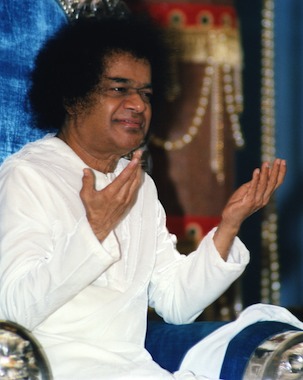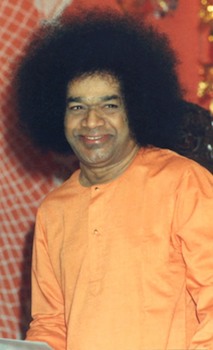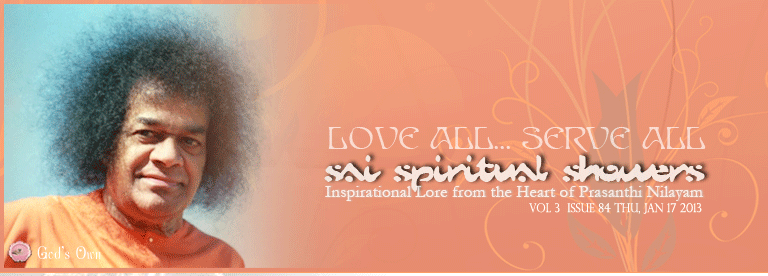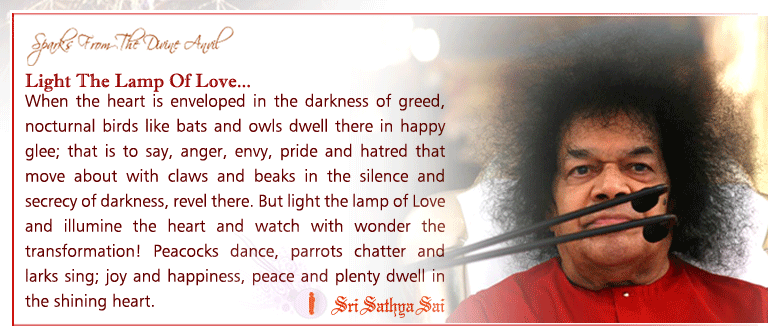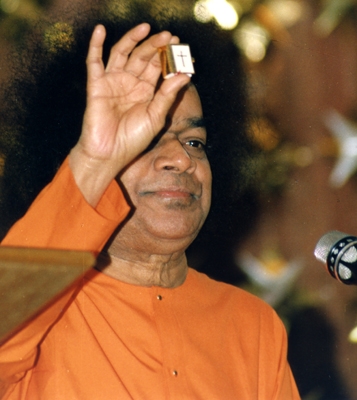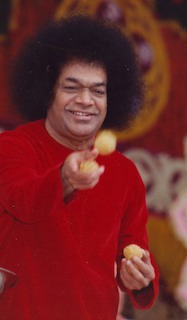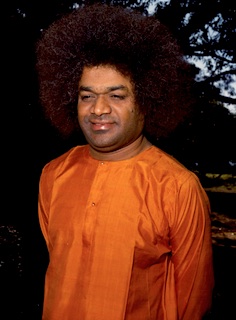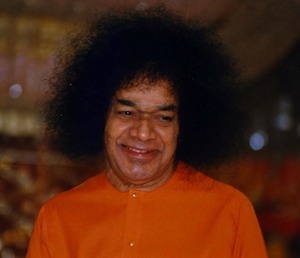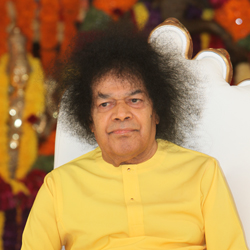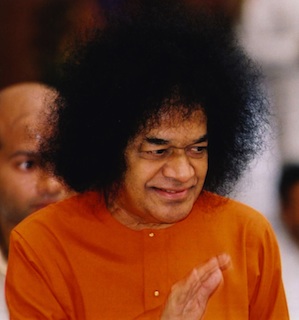I do not know if this belongs here, but I wanted to share this with the devotees.
I came across this reading the huffingtonpost.com
Vamsee JuluriUSF professor; author, 'The Mythologist'
...............
I belonged to a generation, and a moment in time, when the Sai movement, its members and its service activities, were beginning to expand momentously. In my early visits to Puttaparthi in the 1980s, I could still see a bit of the ease and familiarity earlier devotees used to say they had with Baba. The crowds were smaller, and the time one had with him, a little bit longer, and the space more intimate. By the 1990s, the place was a giant spectacle, with thousands, and sometimes tens of thousands, of people visiting the ashram almost every day. The once tiny, desolate and poor village of Puttaparthi now even had an airport. The giant hospital, university and various other philanthropic projects undertaken by Baba dominated the landscape, and the attention of the devotee-volunteers. Heads of state came to visit, frequently, and share in some of the spirit of service and accomplishment that the movement saw at this time, such as the massive projects that delivered drinking water to hundreds of poor villages in the region.
And yet, at the center of all this was the diminutive figure of Baba, a small, maternal, kind and often witty person who many of us simply could not perceive as anything other than an avatar, a human incarnation of divinity itself. At first, that feeling was a strange and unexpected change for me. Until I met Baba, I only thought of God in the abstract, or as mystically embodied in stone and metal in our temples. For nearly 25 years after that, I thought of God in very human terms, as a person, a very specific person, who I thought was so much like my own father and mother in many ways, in his ideals, practice and even his persona. Now, all that seems like it was a wonderful time, but it has passed. Baba is and will continue to be venerated, among the faithful, no different from the other forms and names by which the divine is venerated. In the future, some of us will think of him as we think of Krishna and Rama now. We will, inevitably, move into a realm where our gods will not talk back to us or encourage us or lovingly reprimand us, as the case may once have been. We will make our gods our gods, and forget, inevitably, that they were gurus too, that they so taught us, and not by words alone.
In my brief stay at the ashram this week, I could see that there were many new, younger devotees and visitors present as well. By the afternoon, the sprawling grounds of the ashram started to look the way it used to in the past, with hundreds of families camping out under trees and bits of shade here and there. I remember those days, when tens and sometimes even hundreds of thousands of people descended on Puttaparthi for a mere sight of the man they believed was God incarnate. Even in the anonymity of the mass, there was so much of a connection between the people and their guru, because he was there, and he connected as a human being, an elder and benefactor, with more people and families, and more profoundly and meaningfully, than we can even fathom. His teachings, and the simple bhakti practices he advocated such as service and singing, were perhaps secondary to the mad adoration and faith that marked their relationship with him. Now, only his teachings, and the world he built, remain.
As I left Prashanthi Nilayam at night, and a smiling moon rose over the horizon, I thought briefly about what that world will mean in the future, and mean something it surely will, because the people are there, and they are coming. The question though is what exactly people are coming for. One can be certain that for many, the journey will be about the expectation of a miracle; an illness cured, an examination passed, a promotion secured, the mundane things God gets called on for every moment and every day. Like Shirdi, Puttaparthi will remain a place where faith lives and resonates for the faithful. But there is also the other miracle that took place in this speck of a hamlet in a dry and desolate corner of south India no one would have heard of but for one simple peasant son. That miracle, I think, is still unfolding. We may see its visible manifestations in the form of gigantic hospitals that offer free treatment to all and water pipelines and tankers that quench the thirst of thousands of villagers in India's most arid regions, but there is more to come too. All those who knew Baba, and who are coming to know him now, after his passing, will find that the real arena for the miraculous is not in some mystical plane, but really in our own lives. I think we will find, somehow, still, that kindness and love are the only way to live. There may be alternatives to our religions, our paths and chosen deities. But there is no alternative to love. Sometimes, I feel that because I believe Baba's presence is always here and shows me that. At other times, I feel nothing more than this world and the people in it that make the world for me, and still, all this shows me that too.
Baba did not quite say it in those words, but George Harrison did. Prashanthi Nilayam, the Abode of Peace, seems to me is now Within You and Without You.
Vamsee Juluri: Revisiting Puttaparthi and the Abode of Peace

